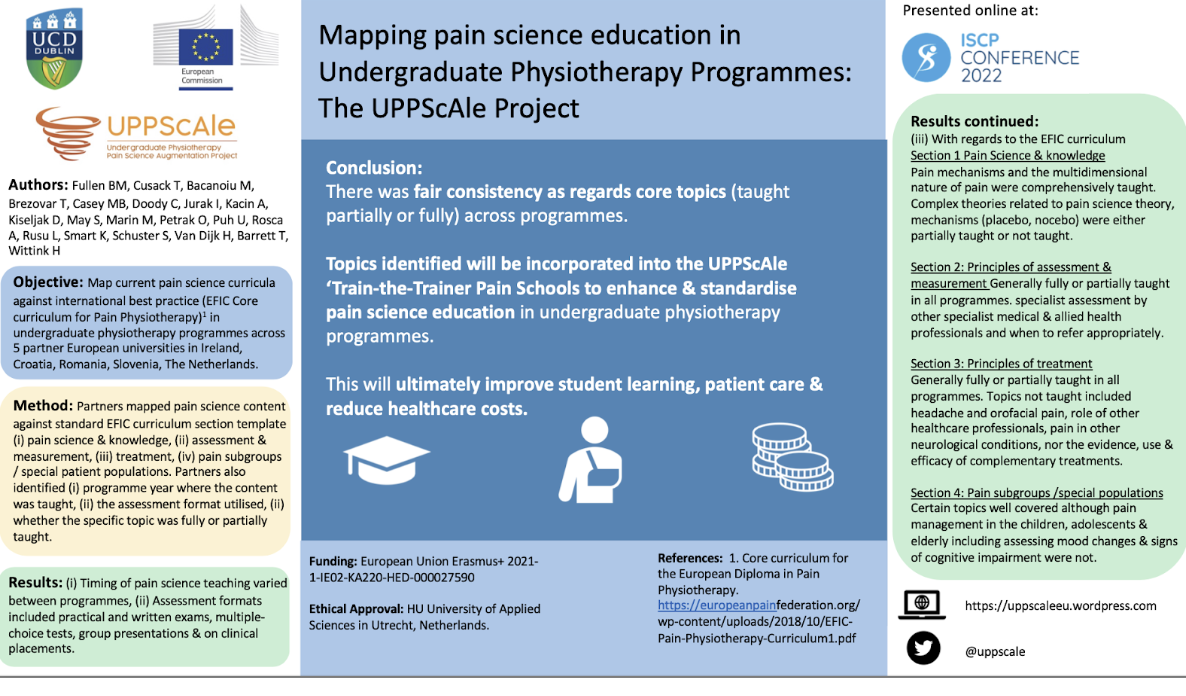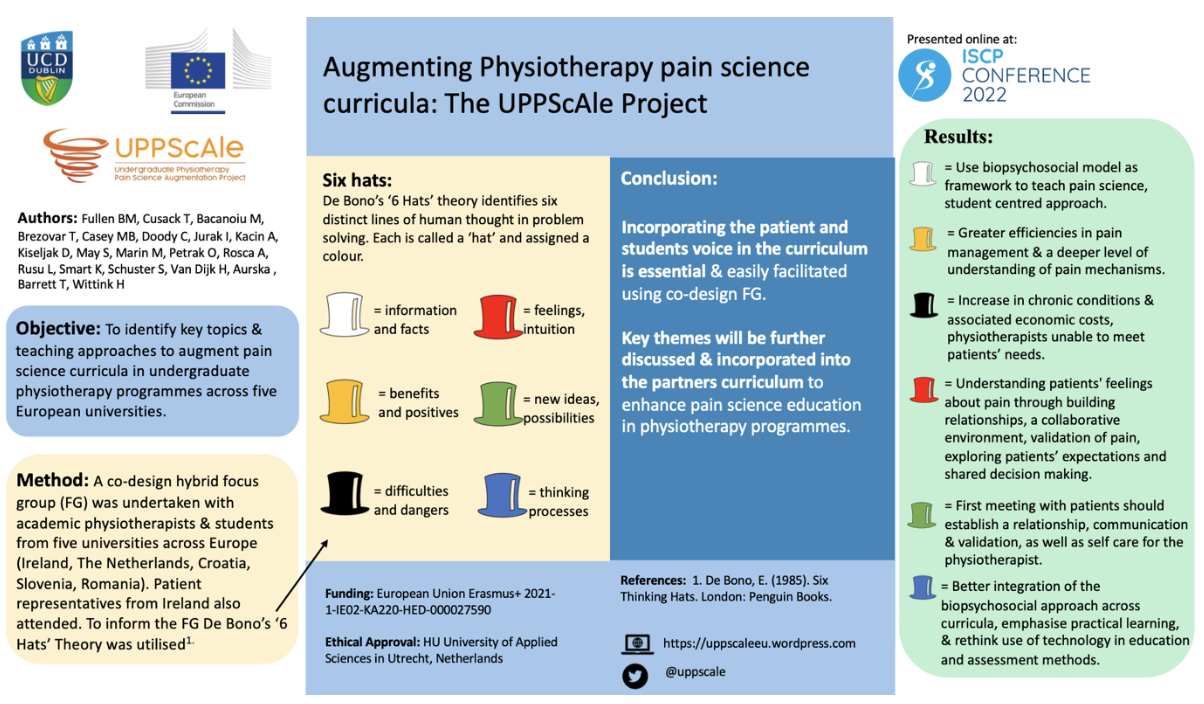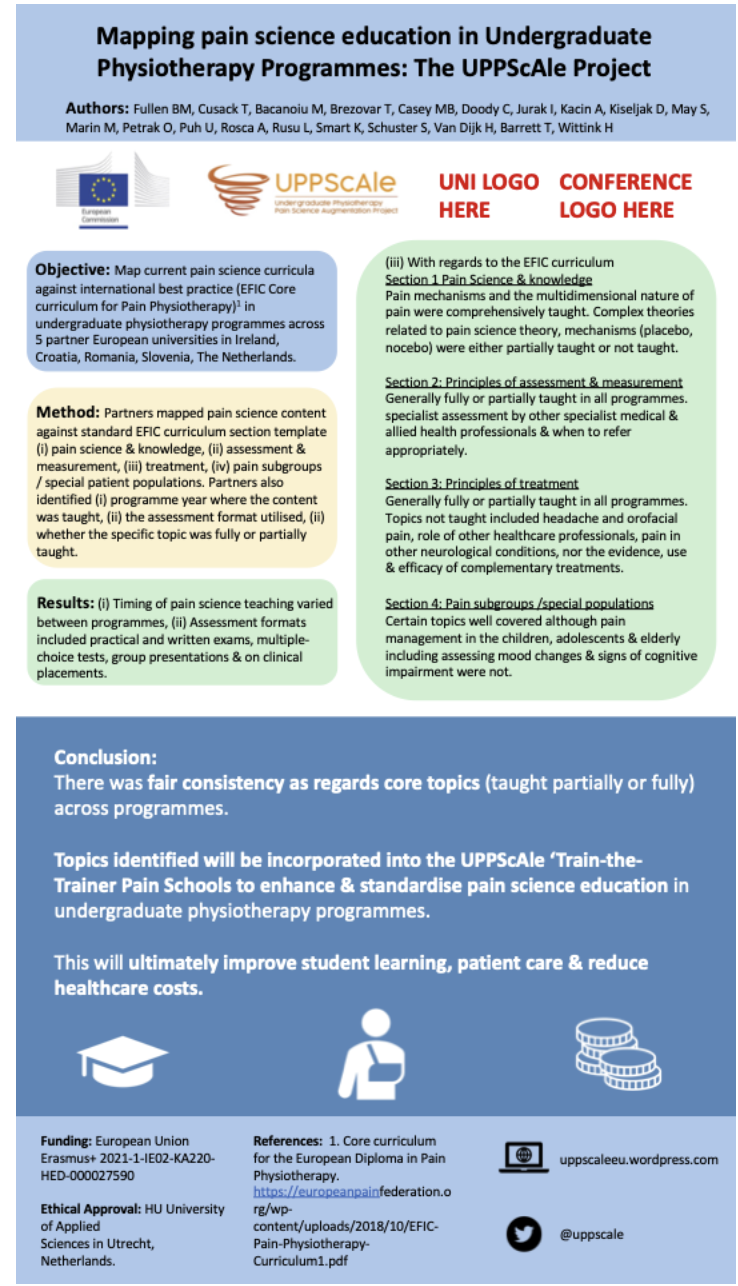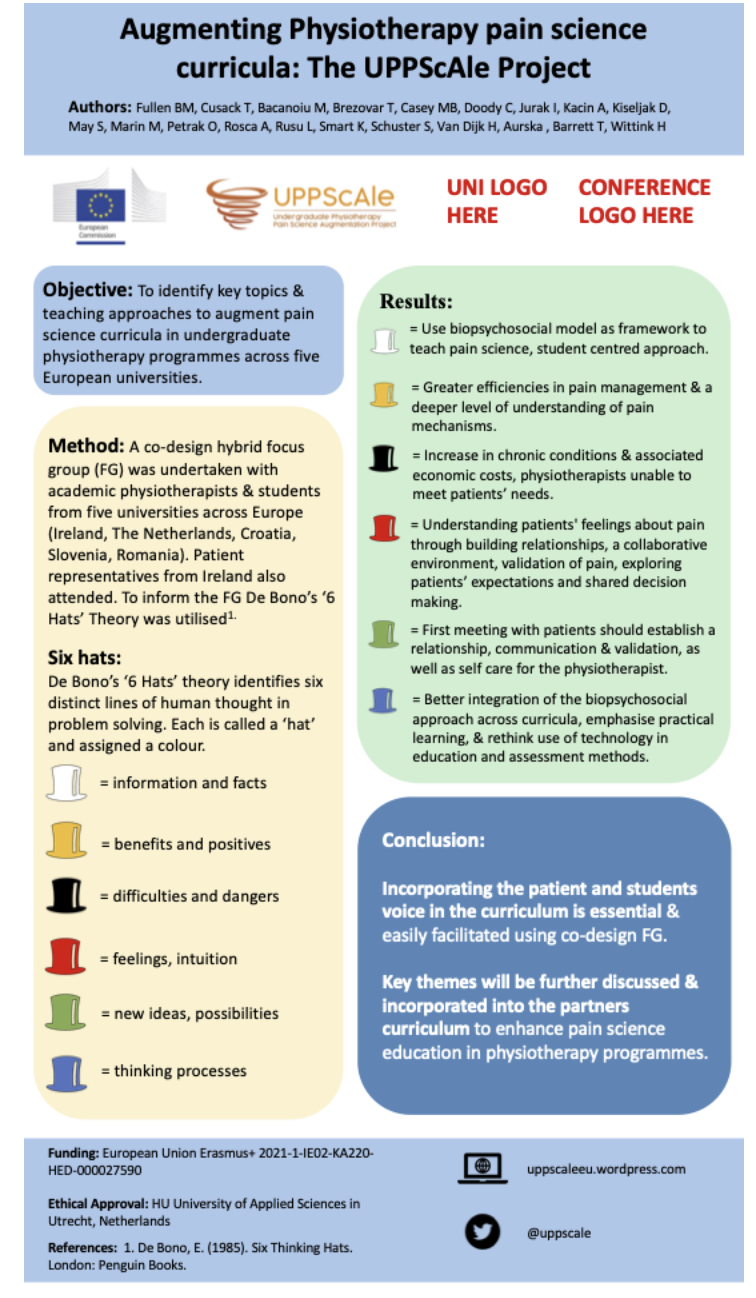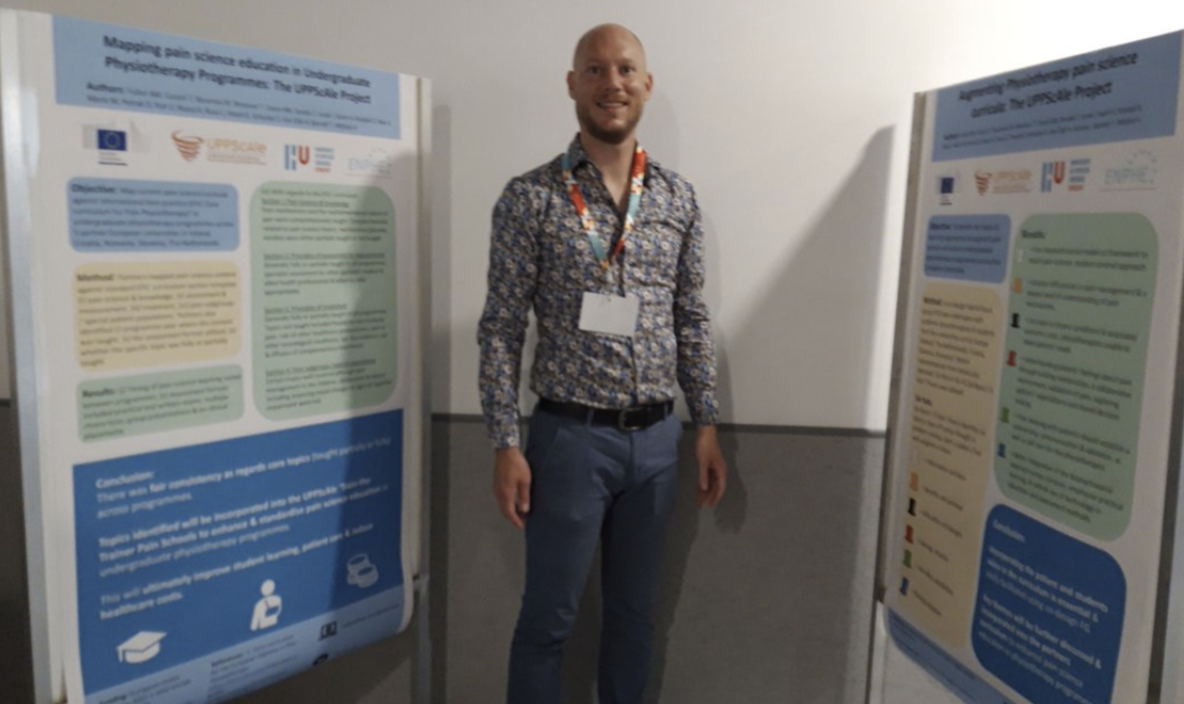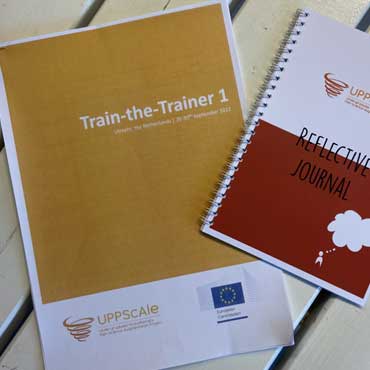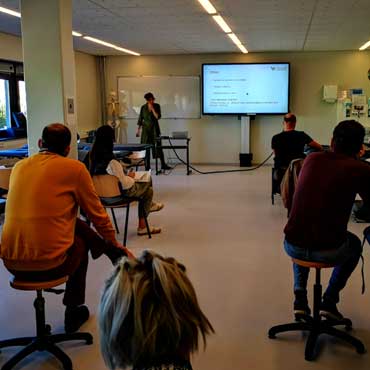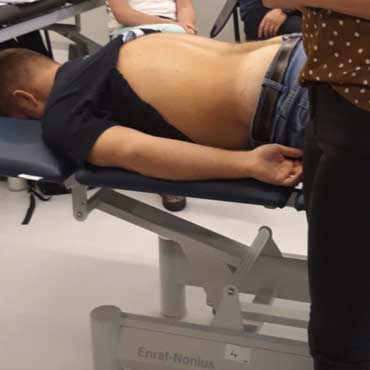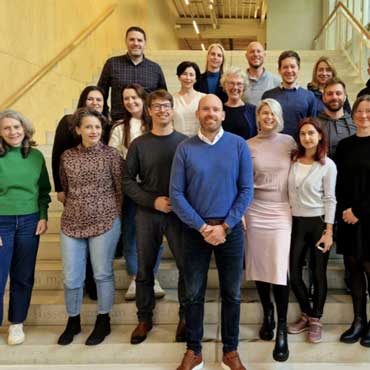Work Package 1 is led by University College Dublin (UCD), Ireland. Work Package 1 of the UPPScAle project consists of curriculum benchmarking of Bachelor Physiotherapy pain science curricula against international best practice (EFIC Pain Physiotherapy curriculum) to identify gaps in learning
Work Package 1 involves a two stage process.
- Part 1: Needs analysis. A curriculum review process mapping partners current pain science curricula against international best practice (EFIC Pain Physiotherapy curriculum).
- Part 2: Focus group with people living with pain, students and recent graduates and academic staff to explore topics that should be included in a curriculum, planned and facilitated by experts in Teaching and Learning.
Part 1: Mapping pain science education in Undergraduate Physiotherapy Programmes: The UPPScAle Project
A curriculum review process maps partners' current pain science curricula against international best practice for graduate physiotherapists (Core curriculum for the European Diploma in Pain Physiotherapy), facilitated by experts in curriculum design in University College Dublin.
A mapping matrix will be sent to the principal investigator in each partner site (Ireland, Croatia, Romania, Slovenia, The Netherlands) to share with their programme colleagues to complete. Categories included:
- Identifying the year of their programme where the content was taught,
- The assessment format utilised (practical exam / OSCE / simulation, a written exam, multiple choice question paper, group presentations or clinical education placements), and
- Whether the specific topic was fully or partially taught.
Part 2: Augmenting Physiotherapy pain science curricula: The UPPScAle Project
The objective of part 2 is to identify key topics and teaching approaches to augment pain science curricula in undergraduate physiotherapy programmes across five European universities.
A co-design hybrid focus group (FG) will be undertaken with academic physiotherapists and students from five universities across Europe (Ireland, The Netherlands, Croatia, Slovenia, Romania). Patient representatives from Chronic Pain Ireland (registered charity supporting people living with pain) also attended.
To inform the FG De Bono’s ‘6 Hats’ Theory will be utilised2. This theory identifies six distinct lines of human thought in problem solving. Each is called a ‘hat’ and assigned a colour: white (information and facts); yellow (benefits and positives); black (difficulties and dangers); red (feelings, intuition); green (new ideas and possibilities); blue (thinking processes). Mixed groups (academics, students and patients) will independently discuss two specific ‘hat’ themes (20 minutes each), after which participants will come together to give feedback.
Incorporating the patient and students voice in the curriculum is essential and easily facilitated using co-design FGs. Key themes will be further discussed and incorporated into the partners curriculum to enhance pain science education in physiotherapy programmes.
References:
- Core curriculum for the European Diploma in Pain Physiotherapy
- De Bono, E. (1985). Six Thinking Hats. London: Penguin Books.

